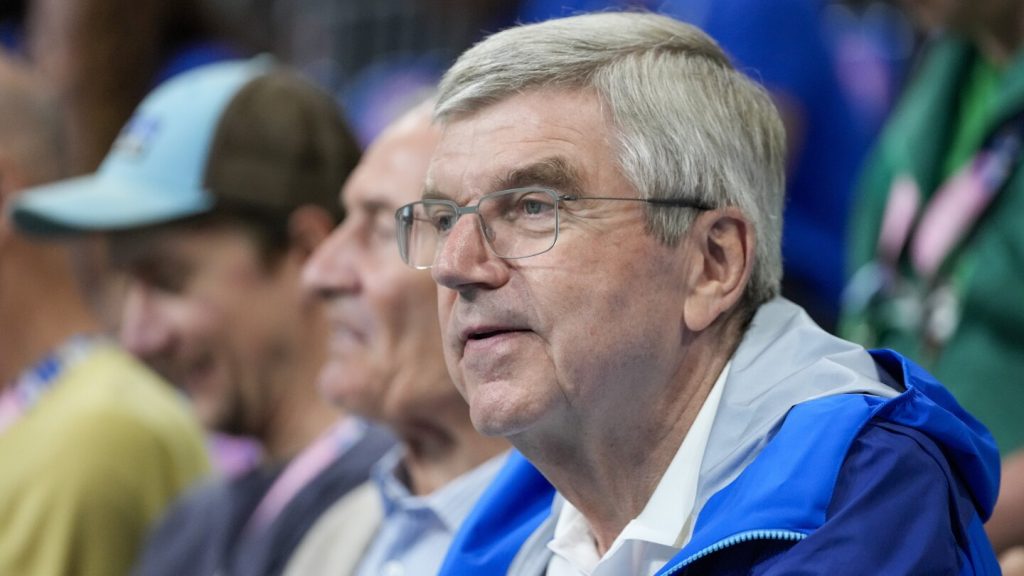Algerian boxer Imane Khelif is set to compete for an Olympic gold medal in the women’s welterweight competition at the Paris Games, amidst a global uproar fueled by misconceptions about her sex. IOC president Thomas Bach defended her right to compete in the women’s competition, emphasizing that it is a matter of justice and not just inclusion. The debate surrounding Khelif and Taiwanese boxer Li Yu-ting, who will fight for the women’s featherweight title, emerged following their disqualification at the 2023 world championships by the Russian-dominated International Boxing Association. The IBA claimed that both fighters failed an eligibility test for women’s competition, leading to their exclusion from the sport.
Despite the controversy, Bach stressed the importance of using a scientifically solid system to identify men and women in sports, rather than making judgments based on appearances or external factors. He condemned the hate speech directed at the two boxers and reaffirmed the IOC’s commitment to ensuring that women have the right to participate in women’s competitions. Bach’s statements come as the Paris Games draw to a close, with discussions on the future of the Summer Games, potential changes in scheduling to address climate change, and preparations for the upcoming event in Los Angeles.
With rising temperatures impacting the traditional July-August time slot for the Summer Games, there is a growing debate on the need to consider moving the event to cooler months. Bach mentioned the interest from countries like Qatar and Saudi Arabia in hosting the Summer Olympics and highlighted the importance of adapting to climate change. As Qatar adjusted the schedule for the 2022 World Cup to avoid extreme heat, similar measures may be necessary for future Olympic Games. The 2032 Brisbane Olympics will also be crucial in determining the event’s timing, especially in relation to broadcasting deals and global sports calendars.
Reflecting on the Paris Games, Bach described the event as a celebration and a love story for the Olympic Games, showcasing a new era of urban, inclusive, and youthful games. As attention shifts to Los Angeles for the next Summer Olympics in 2028, organizers will need to differentiate their approach and create an authentic representation of the city. Bach emphasized the unique characteristics of each host city and the need to showcase their individual identity, rather than replicating iconic landmarks like the Eiffel Tower. Los Angeles plans to highlight its cinematic history and beachfront venues, including SoFi Stadium and Venice Beach.
As speculation continues about the future leadership of the IOC, Bach hinted at the possibility of extending his presidency beyond the 2028 Los Angeles Games. Despite the IOC’s rule limiting presidents to 12 years in office, Bach has the support of the organization’s members to potentially change the Olympic Charter and secure another term. The upcoming IOC elections in 2025 will determine the future leadership of the organization, with Bach likely to run unopposed. However, any changes to the election rules are unlikely to be addressed during the Paris Games closing meeting. The focus remains on the successful conclusion of the event and the transition to the next host city for the Summer Olympics.


